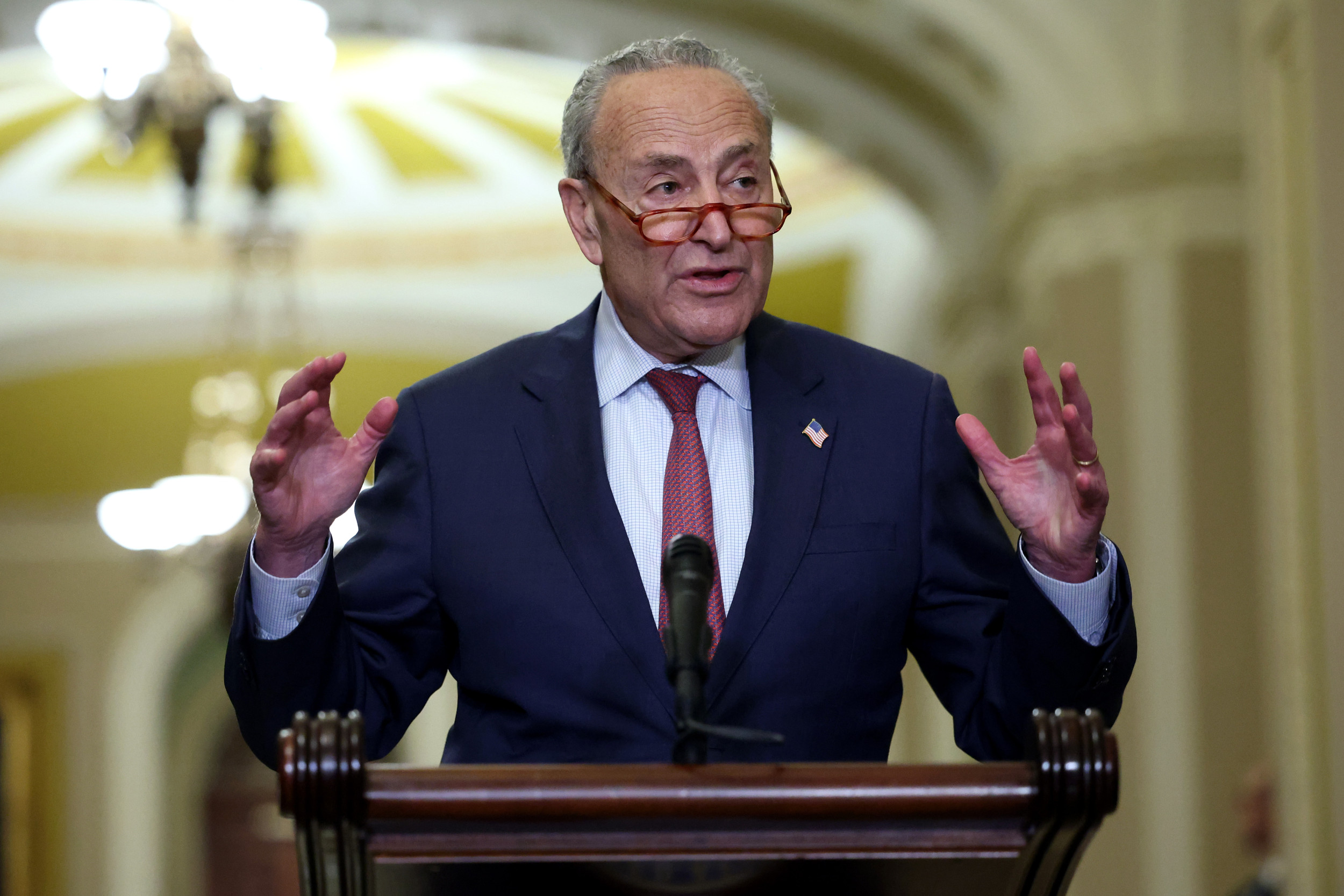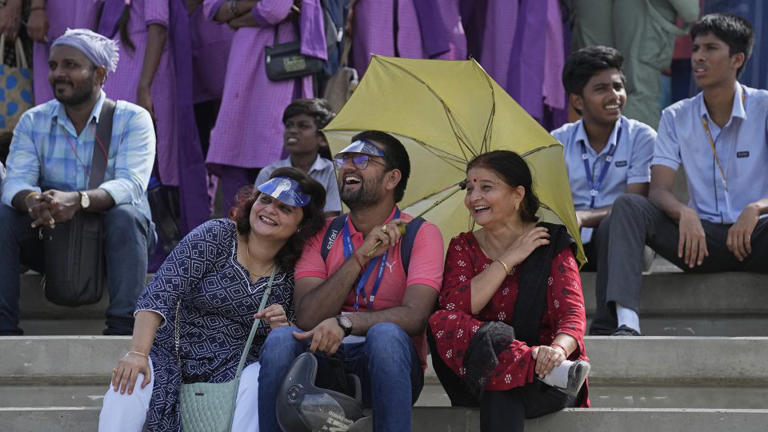Story by The Canadian Press • Yesterday 8:26 a.m.

Online, 'unalive' means death or suicide. Experts say it might help kids discuss those things© Provided by The Canadian Press
When Emily Litman was in middle school, kids whose parents grounded them would blithely lament: “I just want to die." Now she's a middle school teacher in New Jersey, and when her students' phones and TikTok access are taken away, their out-loud whining has a 21st-century digital twist: “I feel so unalive.”
Litman, 46, teaches English as a second language to students in Jersey City. Her students don’t use — and perhaps have never even heard — English words like “suicide.” But they know “unalive.”
“These are kids who’ve had to learn English and are now learning TikToklish,” Litman says.
“Unalive” refers to death by suicide or homicide. It can function as adjective or verb and joins similar phrasing — like “mascara,” to mean sexual assault — coined by social media users as a workaround to fool algorithms on sites and apps that censor posts containing discussion of explicit or violent content.
Language has always evolved. New words have always popped up. Teenagers have often led the way. But the internet and online life pave the way for it to happen more quickly.
In this case, words created within a digital setting to evade rules are now jumping the fences from virtual spaces into real ones and permeating spoken language, especially among young people. Beyond being interesting linguistic footnotes, the terms suggest ways that kids can safely discuss and understand serious matters while using a vocabulary that science — and the adults in their lives — might see as too casual or dangerously naive.
___
EDITOR’S NOTE — This story includes discussion of suicide. If you or someone you know needs help, please call the National Suicide Prevention Lifeline at 800-273-8255.
___
But don't get too worried, experts say. Such a shift is known as a “lexical innovation,” says Andrea Beltrama, a linguistics researcher at the University of Pennsylvania. He and others say that while it might be jarring for non-TikTokkers to hear suicide and sexual assault discussed so euphemistically, it doesn't necessarily remove the seriousness from the conversation.
“Whoever says ‘unalive’ intends to communicate something about suicide, and knows that, and assumes that whoever is on the other end will be able to retrieve that intention,” Beltrama says.
Related video: Rising Rates of Suicides: What You Need to Know to Save a Life (Ivanhoe)Every 11 minutes someone dies by suicide Duration 1:23 View on Watch
Suicide is the second leading cause of death among people ages 10-24, according to the Centers for Disease Control and Prevention, and suicide rates for that age group increased more than 50% from 2000-2021.
Using “unalive” could actually make for more meaningful discussions among youths — giving them a sense of community and trust they couldn't have with adults who use the words “suicide” or “kill.” Beltrama draws a parallel between “unalive” and how a saying like “Let's go Brandon” has become a way to express disdain for President Joe Biden without using the profane phrase that it's code for.
Like “Let's go Brandon” — which arose from a sports broadcaster's on-air mistranslation of a vulgar crowd chant about Biden at a NASCAR race — “unalive” took on, well, a life of its own. Political conservatives chummily co-opted “Let's go Brandon,” and TikTokkers did the same with “unalive.”
“'Unalive' is not only successful, but also seems to be creating almost this kind of solidarity or affiliation between groups of people who share this ability of decoding what 'Let's go Brandon' means," he says.
Dr. Steven Adelsheim, a Stanford University psychiatry professor and the director of the Stanford Center for Youth Mental Health and Wellbeing, also advises against overreaction.
“Young people are pretty savvy,” Adelsheim says. “I think people understand what they’re doing when they’re using ‘unalive’ as a flip descriptor.”
Amber Samuels, a 30-year-old therapist in Washington, D.C., who has used “unalive” in her own social accounts, says that she has heard clients use it and similar euphemisms in speech. To her, “it doesn't feel abnormal or unusual."
“I think when we avoid using specific language to talk about suicide and sexual assault, we risk contributing to a culture of silence and shame surrounding these topics,” Samuels says. “In the case of social media, though, it’s the avoidance of using the actual, uncensored word that allows awareness and conversations to even be possible.”
Lily Haeberle, 18, a senior at Indiana's New Palestine High School, says she recently heard a classmate jokingly refer to “re-aliving” oneself after dying. It could be helpful, she says, to reserve words like “unalive” for such flippant references.
“I think they have sort of developed these alternative words as a means of still being able to joke about those types of things without it coming across in such a harsh way," Haeberle says.
It follows that a vanguard of youth culture — video gaming, in which characters are killed right and left and defeated players often cry, “I’m dead!” — has incorporated the term. Gamer forums and chat rooms are rife with references to “unaliving” characters only to have them “respawned,” or resurrected.
Dictionary.com — the hipper alternative to major English-language dictionaries that so far do not appear to address “unalive” in this sense — uses this example in its definition: “The point of the game is to unalive all enemies before losing your last life token.”
Kids have always had their own slang, but today's adolescents are digital natives constantly barraged with information. Litman has mixed feelings about whether referring to suicide with “unalive” might help or hurt, but she's encouraged that kids are at least talking about it. Particularly, she says, if perceiving suicide as “unaliving” might make a struggling youth more likely to ask for help.
“They’re much more comfortable with these topics," she says, "than I would have been at their age.”
___
Jeff McMillan, a longtime editor at The Associated Press, is also a member of the AP Stylebook editing team. Follow him on Twitter at http://twitter.com/JeffMcMillanPA
Jeff Mcmillan, The Associated Press





















